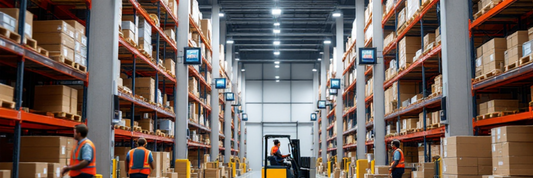Aluminum cans are an integral part of modern packaging, known for their versatility, durability, and environmental benefits. They have been a popular choice for packaging beverages, food, and various other products for decades. This blog post will explore the history, manufacturing process, advantages, and environmental impact of aluminum cans, shedding light on why they remain a top choice for consumers and industries alike.
- Are Cans and Bottles the Same? Understanding Their Differences and Impacts
- Can Aluminum Cans Be Recycled? The Environmental and Economic Benefits of Aluminum Recycling
Aluminum Cans Overview
What Are Aluminum Cans?
Aluminum cans are containers made from aluminum metal, designed to hold and protect beverages, food, and other products. Known for their lightweight properties, they are durable and offer excellent protection against external elements like moisture and light, making them ideal for packaging liquids like soda, beer, and energy drinks.
History of Aluminum Cans in Packaging
The use of aluminum in packaging dates back to the 1950s. The breakthrough for aluminum cans came with the invention of the pull-tab in the early 1960s, making them more convenient for consumers. Over the years, aluminum cans have evolved in design, efficiency, and production methods, becoming the go-to choice for packaging products worldwide.

Why Are Aluminum Cans Popular?
Aluminum cans are popular for several reasons, including their ability to preserve the freshness of products, their lightweight nature, and their recyclability. As the demand for environmentally friendly packaging increases, aluminum cans stand out due to their high recycling rates and energy-saving benefits, making them an eco-conscious choice for both manufacturers and consumers.
The Manufacturing Process
How Aluminum Cans Are Made
The production of aluminum cans involves several key steps, from mining raw materials to the final can production. The process begins with the extraction of bauxite, which is refined into alumina and then transformed into aluminum metal. The aluminum is then rolled, shaped, printed, and coated to create the final product that is both functional and visually appealing.
Steps in Aluminum Can Production
- Mining and Refining Aluminum
The first step in aluminum can production is the extraction of bauxite, the primary source of aluminum. This bauxite is then refined to produce alumina, which is further processed to create aluminum metal.
- Rolling and Shaping
The refined aluminum is rolled into thin sheets, which are then shaped into the desired can form using machines that create the can body, base, and lid.
- Printing and Coating
Aluminum cans are often coated with a protective layer to prevent corrosion and preserve the quality of the contents. Printing is also a key part of the process, allowing brands to showcase their logos and designs on the cans.

Energy Efficiency in Aluminum Production
The energy required to produce aluminum is a significant factor in its overall environmental impact. However, aluminum production has become more energy-efficient, especially when using recycled aluminum, which requires 95% less energy compared to producing primary aluminum from raw materials.
Differences Between Primary and Recycled Aluminum Cans
There are two main types of aluminum used in can production: primary aluminum, which is derived from raw bauxite, and recycled aluminum, which is obtained from scrap aluminum products, including used cans. Recycled aluminum significantly reduces the environmental impact, as it requires less energy and raw material extraction.
Advantages of Aluminum Cans
Environmental Benefits
- Aluminum cans are one of the most sustainable packaging options. They are 100% recyclable and can be recycled indefinitely without losing quality. This not only helps conserve natural resources but also reduces the need for new aluminum mining.
- Lightweight and Easy to Transport: Aluminum cans are incredibly lightweight, making them easy and cost-effective to transport. Their durability ensures that they are less likely to be damaged in transit, which reduces waste and losses.
- 95% Energy Savings with Recycled Aluminum: Recycling aluminum cans saves up to 95% of the energy required to produce new cans from raw materials. This significant energy reduction makes aluminum recycling a key factor in sustainable manufacturing practices.
- Reduction in Carbon Footprint: By using recycled aluminum and reducing the need for new raw materials, the carbon footprint of aluminum cans is substantially lower. This helps mitigate climate change and promotes a more sustainable packaging industry.

Economic Benefits
- Cost-Efficiency in Recycling: Recycling aluminum is highly cost-efficient due to the lower energy requirements and reduced need for raw materials. This leads to a reduction in manufacturing costs and enhances the overall economic sustainability of aluminum can production.
- Recycled Cans as a Revenue Source: Recycled aluminum is valuable and can be sold to manufacturers, creating an economic incentive for individuals and organizations to recycle used cans. This revenue stream helps support the recycling industry and encourages responsible consumer behavior.
Consumer Appeal
- Durability and Protection for Beverages: Aluminum cans provide an excellent barrier against light, air, and moisture, ensuring that the contents remain fresh and unspoiled. This makes them the ideal choice for beverages that need to be preserved for extended periods.
- Aesthetic Customization Opportunities: Aluminum cans offer extensive customization options in terms of design, colors, and branding. The ability to print high-quality designs on aluminum allows brands to differentiate themselves and create visually appealing packaging that attracts consumers.
Conclusion
Aluminum cans are an essential part of modern packaging, offering numerous benefits ranging from environmental sustainability to consumer appeal. As the demand for eco-friendly solutions grows, aluminum cans continue to shine as a versatile and energy-efficient packaging option. Whether for their recycling potential, cost-effectiveness, or durability, aluminum cans are a smart choice for both manufacturers and consumers looking for a sustainable packaging solution.









